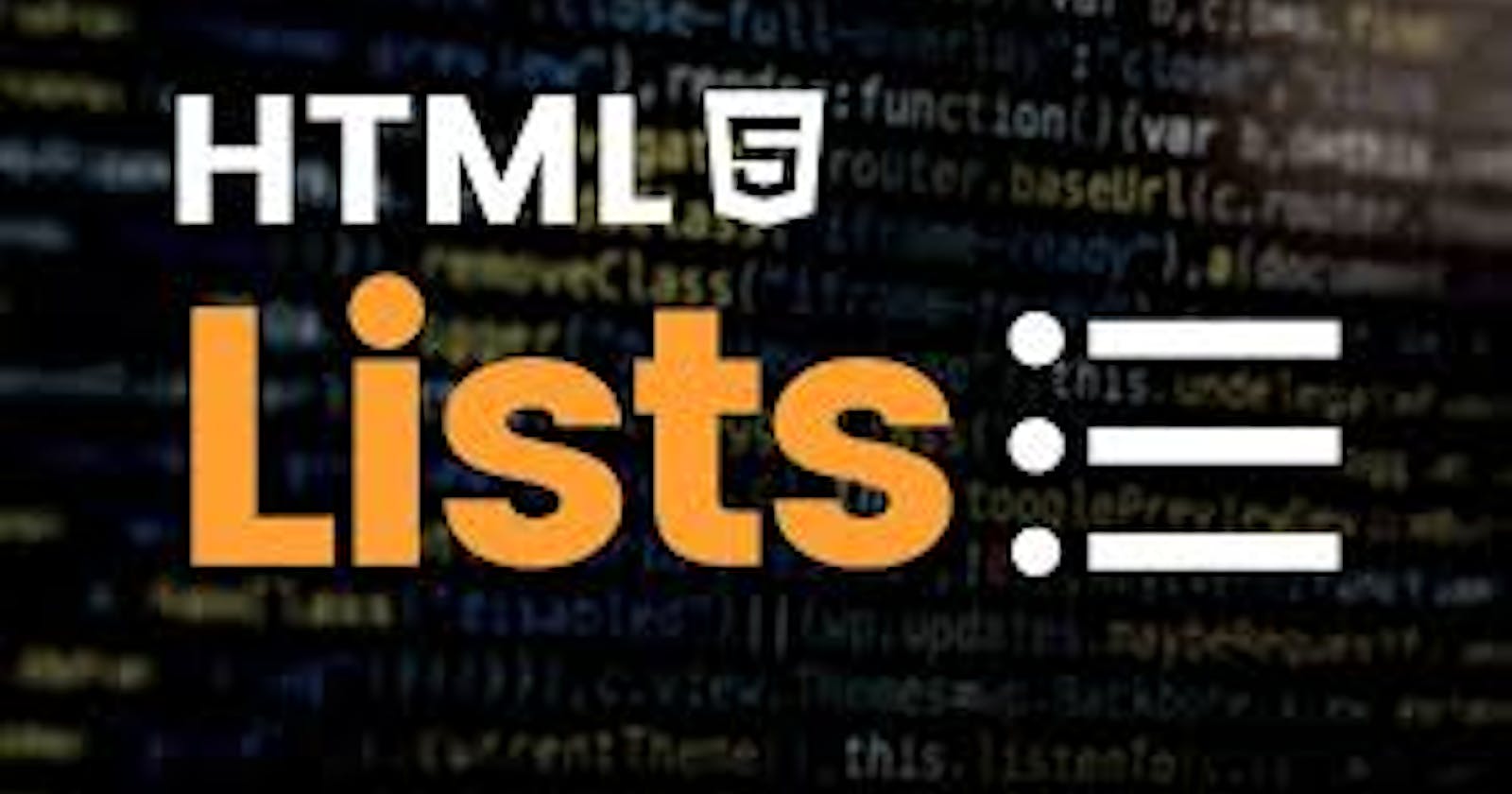Table of contents
No headings in the article.
Hello Peeps,
Do you understand what a list is? In this blog post, let's discover more about them.
Let's first define a list: A list displays a collection of information.
It is represented by <li> for an open tag and </li> for a close tag.
There are three types of lists in HTML:
- Ordered list (
<ol>) - Unordered list (
<ul>) - Definition or Description list (
<dl>)
<ol>- It shows the ordered collection. Ordered lists can be represented in five ways.- type= "1" (Numbers - they are by default)
- type= "A" (Uppercase letters)
- type= "a" (Lowercase letters)
- type= "I" (Uppercase roman numbers)
- type= "i" (Lowercase roman numbers)
Look at the examples below:
Numbers
Input
<ol type="1">
<li>Apple</li>
<li>Mango</li>
<li>Banana</li>
<li>Orange</li>
</ol>
Output
- Apple
- Mango
- Banana
- Orange
Uppercase Letters
Input
<ol type="A">
<li>Apple</li>
<li>Mango</li>
<li>Banana</li>
<li>Orange</li>
</ol>
Output
A. Apple
B. Mango
C. Banana
D. Orange
Lowercase letters
Input
<ol type="a">
<li>Apple</li>
<li>Mango</li>
<li>Banana</li>
<li>Orange</li>
</ol>
Output
a. Apple
b. Mango
c. Banana
d. Orange
Uppercase roman numbers
Input
<ol type="I">
<li>Apple</li>
<li>Mango</li>
<li>Banana</li>
<li>Orange</li>
</ol>
Output
I. Apple
II. Mango
III. Banana
IV. Orange
Lowercase roman numbers
Input
<ol type="i">
<li>Apple</li>
<li>Mango</li>
<li>Banana</li>
<li>Orange</li>
</ol>
Output
i. Apple
ii. Mango
iii. Banana
iv. Orange
<ul>- It shows the unordered collection. Unordered lists can be represented in 4 ways.- type= "disc" (By default method. It represents in the form of bullets.)
- type= "circle" (It sets the item to circle)
- type= "square" (It sets the item to square)
- type= "none" (It has nothing)
Look at the examples below to make a clear and better understanding:
Disc
Input
<ul style="list-style-type: disc;">
<li>Apple</li>
<li>Mango</li>
<li>Banana</li>
<li>Orange</li>
</ul>
Output
- Apple
- Mango
- Banana
- Orange
Circle
Input
<ul style="list-style-type: circle;">
<li>Apple</li>
<li>Mango</li>
<li>Banana</li>
<li>Orange</li>
</ul>
Output
◌ Apple
◌ Mango
◌ Banana
◌ Orange
Square
Input
<ul style="list-style-type: square;">
<li>Apple</li>
<li>Mango</li>
<li>Banana</li>
<li>Orange</li>
</ul>
Output
⌑ Apple
⌑ Mango
⌑ Banana
⌑ Orange
None
Input
<ul style="list-style-type: none;">
<li>Apple</li>
<li>Mango</li>
<li>Banana</li>
<li>Orange</li>
</ul>
Output
Apple
Mango
Banana
Orange
<dl>- It gives the description of each item in a list.<dt>- It gives the item name and<dd>gives the detail of the item.
Look at the example below:
Input
<dl>
<dt>Apple</dt>
<dd>2 kg</dd>
<dt>Mango</dt>
<dd>5 kg</dd>
</dl>
Output
- Apple
- 2 kg
- Mango
- 5 kg
Conclusion: In today's blog, we've learned about lists. Stay tuned to know more about HTML.
